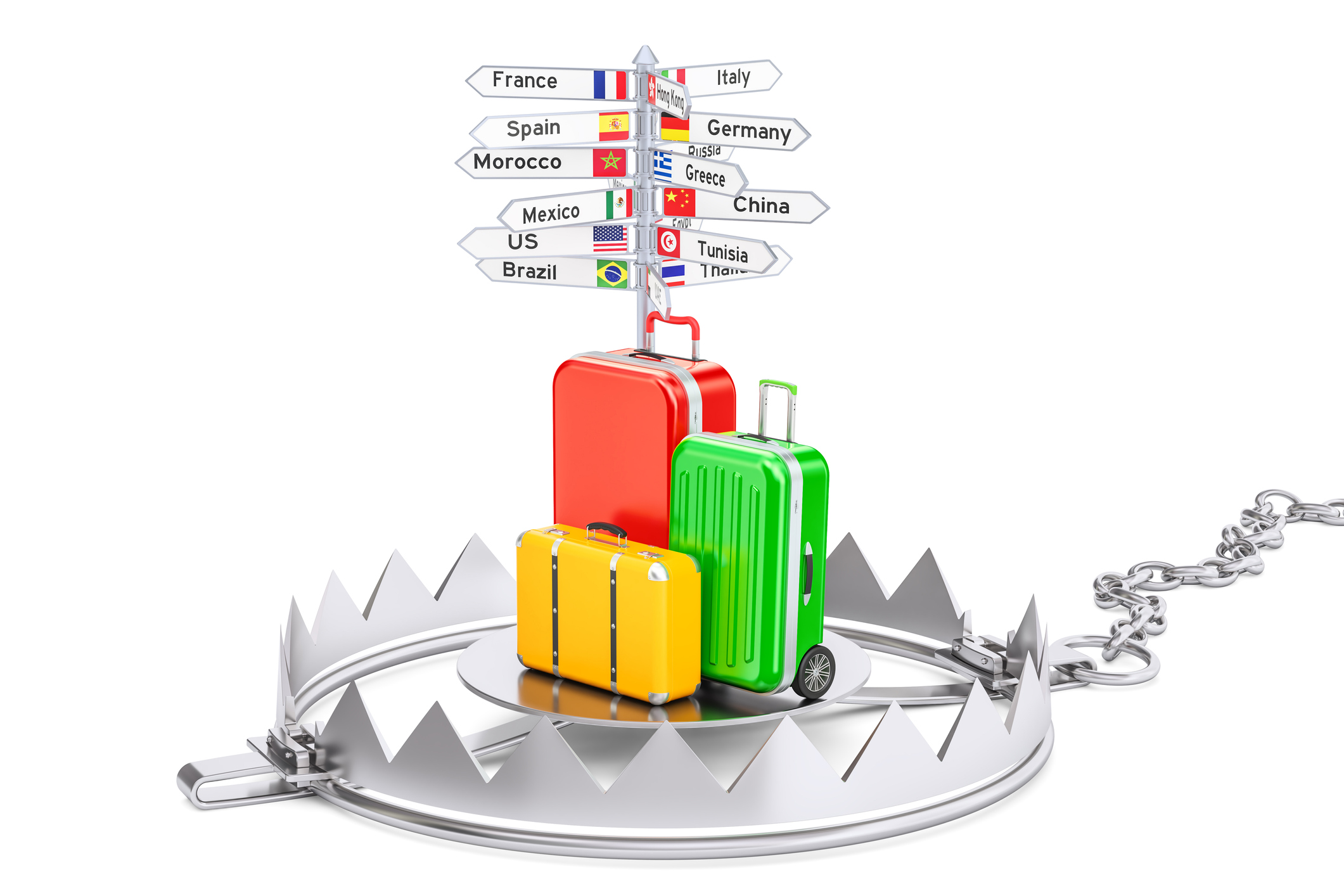Following long periods of isolation and shutdowns during the COVID-19 pandemic, more people are taking the opportunity to travel, even when gas prices and airline hassles may cause tourists grief. Older adults are eager to check a few destinations off their bucket list and European travel has seen a significant uptick this summer thanks to higher vaccination rates and a favorable North American exchange rate. But seniors also need to beware of a rising number of travel scams that can sound too good to be true but may leave victims with a dent in their wallets and possibly no hotel or flight.
Scammers are using the sometimes-chaotic current travel circumstances to prey on vulnerable travelers. Flight delays are just one of the ways fraudsters are targeting victims by using a cancellation as an opportunity to provide travelers with a better “deal” for their rescheduled flight. Fraudsters will sometimes pose as an airline or travel agency – beware of anything that sounds like too good a deal. Avoid giving out any personal information before confirming the phone number and never click on an embedded link in an email.
Digital fraud using stolen travellers’ credit cards or online hotel or flight booking is also becoming more common. It’s important to use only legitimate and trusted online businesses and websites. Look for small spelling errors or extreme discounts as red flags that a site or link is a scam. Using public Wi-Fi to conduct financial transactions can also put travellers at greater risk of having their private information compromised. Consider purchasing an international data plan or using a virtual private network while traveling.
If you are worried about having personal items lost or stolen during a trip, or falling for a scam, travel insurance can offer peace of mind and help to recover any losses. Travel insurance can also protect against illness, injury, and cancellations. Learn more about how to avoid scams when you travel by following this link to the Federal Trade Commission Consumer Advice webpage. In Canada follow this link to Canadian resources for avoiding scams while travelling.






Add Your Voice
0 Comments
Join the Discussion